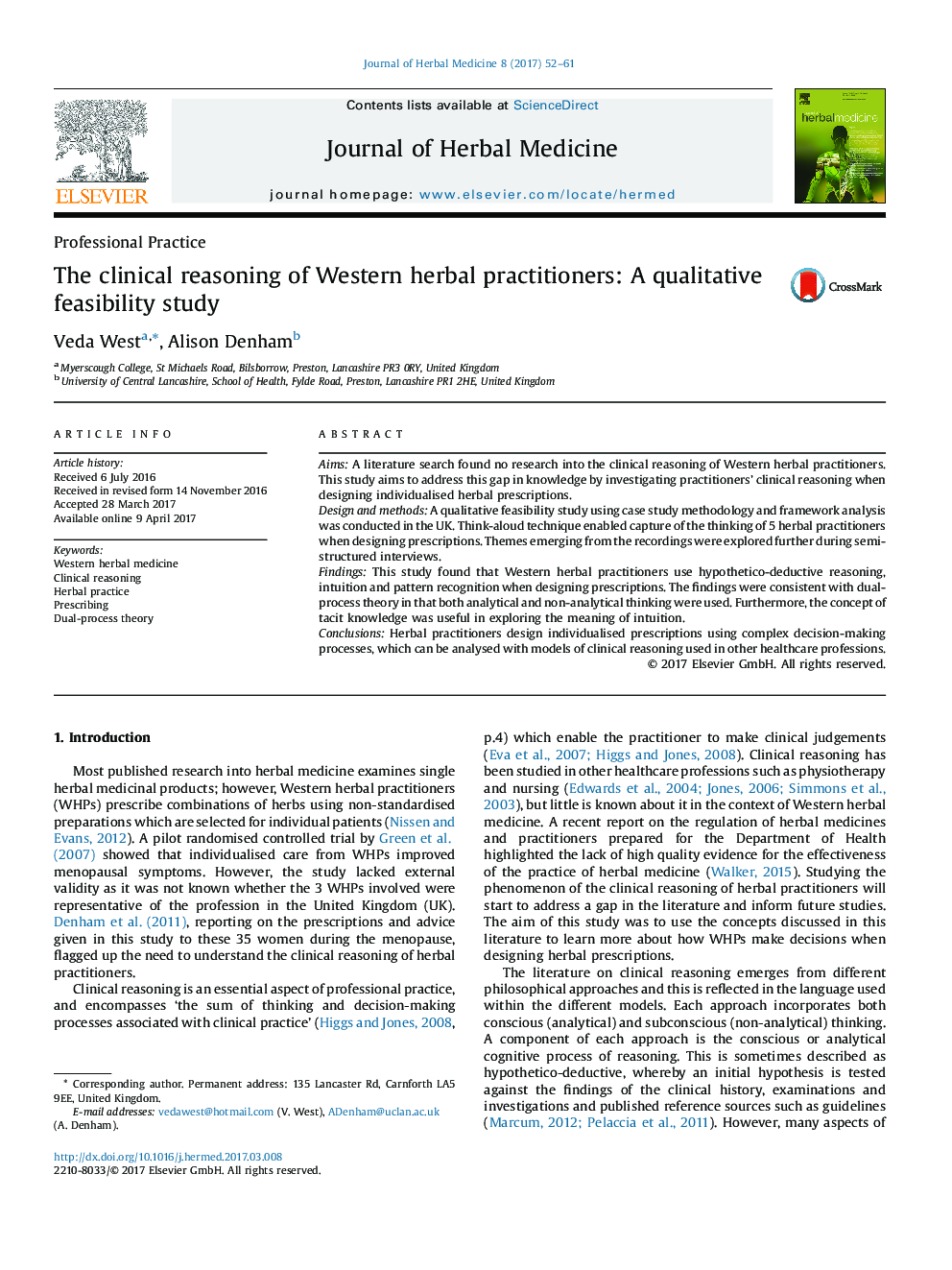| Article ID | Journal | Published Year | Pages | File Type |
|---|---|---|---|---|
| 5548265 | Journal of Herbal Medicine | 2017 | 10 Pages |
AimsA literature search found no research into the clinical reasoning of Western herbal practitioners. This study aims to address this gap in knowledge by investigating practitioners' clinical reasoning when designing individualised herbal prescriptions.Design and methodsA qualitative feasibility study using case study methodology and framework analysis was conducted in the UK. Think-aloud technique enabled capture of the thinking of 5 herbal practitioners when designing prescriptions. Themes emerging from the recordings were explored further during semi-structured interviews.FindingsThis study found that Western herbal practitioners use hypothetico-deductive reasoning, intuition and pattern recognition when designing prescriptions. The findings were consistent with dual-process theory in that both analytical and non-analytical thinking were used. Furthermore, the concept of tacit knowledge was useful in exploring the meaning of intuition.ConclusionsHerbal practitioners design individualised prescriptions using complex decision-making processes, which can be analysed with models of clinical reasoning used in other healthcare professions.
